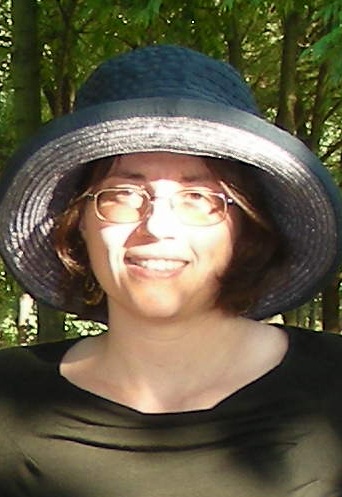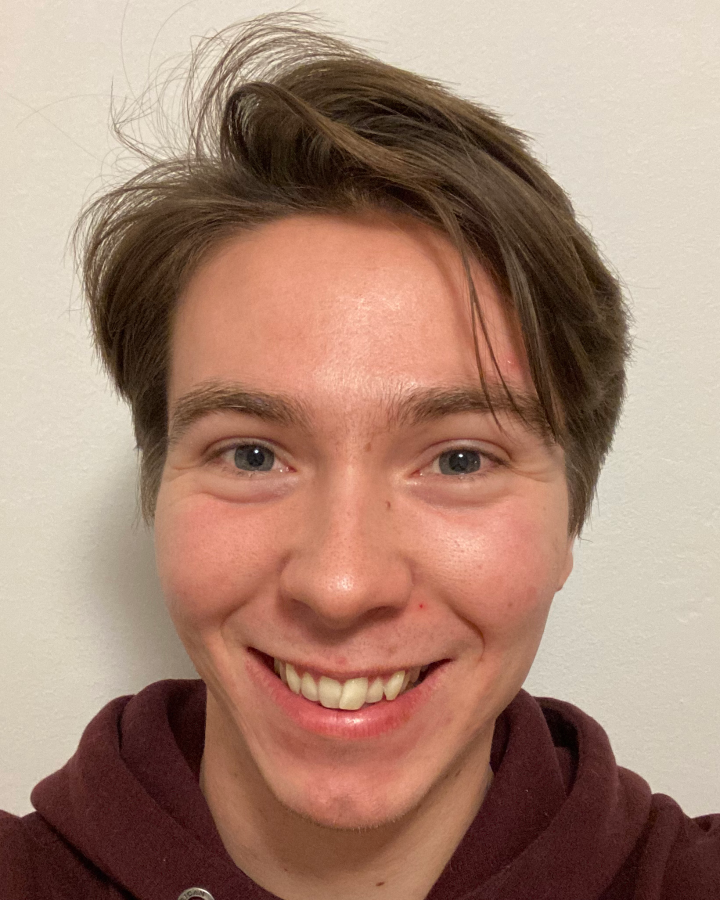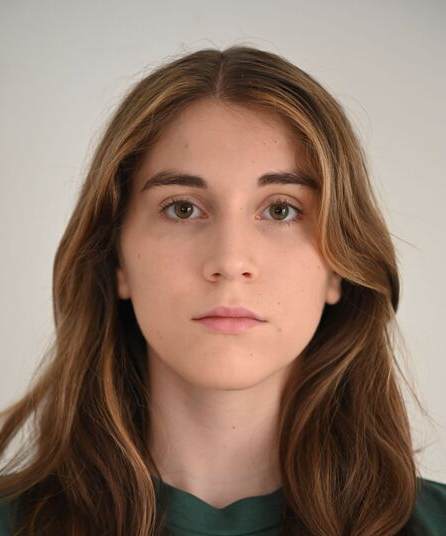Gerti Kappel
O.Univ.Prof.in Dipl.-Ing.in
Mag.a Dr.in techn.
Gerti Kappel
- Email: gertrude.kappel@tuwien.ac.at
- Phone: +43-1-58801-18870
- Office: HC0215 (1040 Wien, Favoritenstrasse 9)
- About:
Gerti Kappel is full professor at the Institute of Information Systems Engineering at TU Wien, chairing the Business Informatics Group. Prior to that, from 1993 to 2001, she was a full professor of computer science (database systems) and head of the Department of Information Systems at the Johannes Kepler University Linz.
From 2016 to 2019, she was a member of the dean’s team of the Faculty of Informatics responsible for research, diversity, and financial affairs. Since the beginning of 2020 she acts as the dean of the Faculty of Informatics at TU Wien.
Her current research interests include Model Engineering, Web Engineering, and Process Engineering, with a special emphasis on cyber-physical production systems. Striving for the unity of research and teaching, she co-authored and co-edited among others „UML@Work“ (dpunkt.verlag, 3rd ed, 2005), „UML@Classroom“ (Springer, 2015), and „Web Engineering“ (Wiley, 2006).
- Orcid: 0000-0002-4758-9436
- Keywords: Process Engineering, Data Engineering, Services Engineering, UML and XML, Business Process Management (BPM), Model Engineering, Workflow Management Systems (WFMS), Web Engineering, Object Orientation, Software Engineering
- Roles: Head of Services, Full Professor
Publications
Semantic Model Differencing Utilizing Behavioral Semantics Specifications
 Philip Langer
Philip Langer Tanja Mayerhofer
Tanja Mayerhofer
Langer, P., Mayerhofer, T., & Kappel, G. (2014). Semantic Model Differencing Utilizing Behavioral Semantics Specifications. In Proceedings of the 17th International Conference on Model-Driven Engineering Languages and Systems (MODELS 2014) (pp. 116–132). Springer. http://hdl.handle.net/20.500.12708/55229
A Generic Framework for Realizing Semantic Model Differencing Operators
 Philip Langer
Philip Langer Tanja Mayerhofer
Tanja Mayerhofer
Langer, P., Mayerhofer, T., & Kappel, G. (2014). A Generic Framework for Realizing Semantic Model Differencing Operators. In Joint Proceedings of MODELS 2014 Poster Session and the ACM Student Research Competition (SRC) co-located with the 17th International Conference on Model Driven Engineering Languages and Systems (MODELS 2014) (pp. 16–20). CEUR. http://hdl.handle.net/20.500.12708/55230
Kappel, G. (2014). From Model Evolution to Evolution Models. In Proceedings of the Models and Evolution Workshop @ MODELS’14 (p. 1). http://hdl.handle.net/20.500.12708/55947
Keywords: model-driven engineering, executable model, executable modeling language, metamodeling, software language engineering, behavioral semantics, fUML
Astract: Model-driven engineering (MDE) is a software development paradigm aiming to cope with the growing complexity of software systems by raising the level of abstraction. In this paradigm, a system is defined by means of models using modeling languages that enable developers to abstract away from implementation and platform details. From the models, complete implementations may be (semi-)automatically generated by utilizing model transformation techniques. As MDE puts models into the center of software development, adequate methods for creating, analyzing, and utilizing models are crucial. Due to the large body of used modeling languages, means for efficiently developing adequate tool support for modeling languages are needed. To address this need, the automation techniques provided by MDE may also be applied to automate the development of such tool support. This is current practice for developing syntax-based tools. However, the automated development of semantics-based tools has not reached the same level of maturity yet. The goal of this thesis is to fill this gap and provide a solution for automating the development of semantics-based tools for executable modeling languages. Therefore, a language and methodology for developing behavioral semantics specifications based on the standardized language fUML are proposed. To provide the basis for developing semantics-based tools, the execution environment of fUML was extended with means for execution control, runtime observation, and runtime analysis. Based on these extensions, a generic model execution environment for modeling languages whose behavioral semantics is defined with fUML was developed. This environment provides the foundation for developing semantics-based tools for executable modeling languages, which has been shown by the implementation of a semantic model differencing tool and other semantics-based tools.
Mayerhofer, T. (2014). Defining executable modeling languages with fUML [Dissertation, Technische Universität Wien]. reposiTUm. https://doi.org/10.34726/hss.2014.27686
Model-based deployment and provisioning of applications to the cloud
 David Madner
David Madner Alexander Bergmayr
Alexander BergmayrKeywords: Cloud computing, Model-Driven-Engineering, UML
Astract: Cloud computing had and still has a major impact on how applications are made accessible for the users. Due to the advantages cloud computing has, there is a demand to migrate applications to the cloud. Unfortunately there does not exist general guidelines how to define the required application execution environments and deployment requirements so that they can be interpreted by any arbitrary cloud provider. In the last years, cloud providers came up with approaches to be able to describe cloud resources in form of an interpretable template. Just recently, in November 2013, OASIS published the open standard TOSCA [44], which aims to unite existing proprietary approaches and standardise them. Approaches following a declarative way of describing orchestrated cloud resources are quite recent and are extended frequently, as it is a promising possibility of illustrating complex dependencies and limitations of computing resources in a way that can be read by human beings as well. This thesis firstly discusses model driven engineering and cloud computing separately and afterwards, how they can be combined. The main aim is to create a model that contains enough information about dependencies, limitations and application specific requirements, which can support the migration of the application to the cloud. Furthermore, the master-s thesis proposes a process, which is subdivided into two parts: Deployment and Provisioning. The first step is about creating UML models and refining them with UML extensions (classifiers, profiles and stereotypes), which consists out of cloud computing specific attributes. The second step converts the model into a template, by means of applying model to text transformations, in order to be interpretable and executable by cloud providers. Existing solutions only address partial aspects of the whole problem, focusing on other objectives. One of the main goal of this thesis is the creation of a unified and model-based solution, whose processes and tools support the application modeler and make a (semi-)automatic execution of the deployment and provisioning of an application in the cloud possible.
Madner, D. (2014). Model-based deployment and provisioning of applications to the cloud [Diploma Thesis, Technische Universität Wien]. reposiTUm. https://doi.org/10.34726/hss.2014.21937
Teaching
Project in Computer Science 1
Semester: 2025S; Nr: 194.145; Type: PR; Hours: 4.0; Language: if required in English; View on TISSSeminar for Master Students in Business Informatics
Semester: 2024W; Nr: 180.779; Type: SE; Hours: 1.0; Language: English; View on TISSResearch Seminar
Semester: 2024W; Nr: 188.446; Type: SE; Hours: 2.0; Language: if required in English; View on TISSLiterature Seminar for PhD Students
Semester: 2024W; Nr: 188.512; Type: SE; Hours: 2.0; Language: German; View on TISSModel Engineering
Semester: 2024W; Nr: 188.923; Type: VU; Hours: 4.0; Language: English; View on TISSBachelor Thesis for Informatics and Business Informatics
Semester: 2024W; Nr: 188.926; Type: PR; Hours: 5.0; Language: if required in English; View on TISSScientific Research and Writing
Semester: 2024W; Nr: 193.052; Type: SE; Hours: 2.0; Language: German; View on TISSProject in Computer Science 1
Semester: 2024W; Nr: 194.145; Type: PR; Hours: 4.0; Language: if required in English; View on TISSSustainability in Computer Science
Semester: 2024W; Nr: 194.155; Type: VU; Hours: 2.0; Language: English; View on TISSProjects
Digitale Kompetenzen @ Parlament
Name: DKP; Title: Digitale Kompetenzen @ Parlament; Begins On: 2021-04-01; Ends On: 2021-09-30; Context: Parlamentsdirektion; View Project WebsiteIFC-Roundtrip und Plangrafiken
Name: IFC-Roundtrip und Plangrafiken; Title: IFC-Roundtrip und Plangrafiken; Begins On: 2019-01-01; Ends On: 2020-06-30; Context: tbw solutions ZT GesmbH; View Project WebsiteVienna Informatics Living Lab
Name: Vienna Informatics Living Lab; Title: Vienna Informatics Living Lab; Begins On: 2018-08-01; Ends On: 2019-07-31; Context: Vienna Business Agency (WAW); View Project WebsiteMulti-Paradigm Modelling for Cyber-Physical Systems (MPM4CPS)
Name: MPM4CPS; Title: Multi-Paradigm Modelling for Cyber-Physical Systems (MPM4CPS); Begins On: 2014-10-01; Ends On: 2019-05-31; Context: European Cooperation in Science and Technology (COST); View Project WebsiteCOSIMO: Collaborative Configuration Systems Integration and Modeling
Name: COSIMO; Title: COSIMO: Collaborative Configuration Systems Integration and Modeling; Begins On: 2014-01-01; Ends On: 2017-05-30; Context: Vienna Business Agency (WAW); View Project WebsiteARTIST: Advanced software-based seRvice provisioning and migraTIon of legacy Software
Name: ARTIST; Title: ARTIST: Advanced software-based seRvice provisioning and migraTIon of legacy Software; Begins On: 2012-10-01; Ends On: 2015-09-30; Context: European Commission; View Project WebsiteDARWIN - Model-driven Development and Evolution of Semantic Infrastructures
Name: DARWIN; Title: DARWIN - Model-driven Development and Evolution of Semantic Infrastructures; Begins On: 2012-03-01; Ends On: 2015-02-28; Context: Austrian Research Promotion Agency (FFG); View Project WebsiteTROPIC: A Framework for Model Transformations on Petri Nets in Color
Name: TROPIC; Title: TROPIC: A Framework for Model Transformations on Petri Nets in Color; Begins On: 2009-03-01; Ends On: 2012-08-31; Context: Austrian Science Fund (FWF); View Project WebsiteAMOR: Adaptable Model Versioning
Name: AMOR; Title: AMOR: Adaptable Model Versioning; Begins On: 2009-02-01; Ends On: 2011-09-30; Context: SparxSystems Software GmbH; View Project WebsiteDevelopment of a WEB-based database for the global administration of CAN-Data
Name: Rosenbauer-DB; Title: Development of a WEB-based database for the global administration of CAN-Data; Begins On: 2008-09-01; Ends On: 2009-04-30; Context: Rosenbauer; View Project WebsiteModel-Driven Web Engineering net
Name: MDWEnet; Title: Model-Driven Web Engineering net; Begins On: 2006-12-01; Ends On: 2010-12-31; Context: Johannes Kepler Universität Linz; View Project WebsiteTRACK and TRADE: Creating a Data Mart for Floating Car Data
Name: TRACK™ Title: TRACK and TRADE: Creating a Data Mart for Floating Car Data; Begins On: 2006-10-01; Ends On: 2008-09-30; Context: European Commission; View Project WebsiteModelCVS: A Semantic Infrastructure for Model-based Tool Integration
Name: ModelCVS; Title: ModelCVS: A Semantic Infrastructure for Model-based Tool Integration; Begins On: 2006-01-01; Ends On: 2007-12-31; Context: ARIKAN Productivity Group GesmbH; View Project WebsiteZELESSA: An Enabler for Real-time Business Intelligence
Name: ZELESSA; Title: ZELESSA: An Enabler for Real-time Business Intelligence; Begins On: 2006-01-01; Ends On: 2007-06-30; Context: Österr. Nationalbibliothek; View Project WebsiteAdmina.at goes Austria
Name: Admina.at; Title: Admina.at goes Austria; Begins On: 2005-12-01; Ends On: 2007-09-30; Context: Federal Ministry of Science and Research (bm:wf); View Project WebsiteWomen's Postgraduate College for Internet Technologies
Name: WIT; Title: Women's Postgraduate College for Internet Technologies; Begins On: 2003-01-01; Ends On: 2007-12-31; Context: European Commission; View Project WebsiteTeam
Business Informatics Group, TU Wien
Professors
Christian Huemer
Ao.Univ.Prof. Mag.rer.soc.oec.Dr.rer.soc.oec.
Dominik Bork
Associate Prof. Dipl.-Wirtsch.Inf.Univ.Dr.rer.pol.
Gerti Kappel
O.Univ.Prof.in Dipl.-Ing.inMag.a Dr.in techn.
Henderik Proper
Univ.Prof. PhDResearchers
Aleksandar Gavric
Univ.Ass. MEng. B.Eng.
Galina Paskaleva
Projektass.in Dipl.-Ing.inDipl.-Ing.in BSc

Marianne Schnellmann
Univ.Ass.in BSc MScMarion Murzek
Senior Lecturer Mag.a rer.soc.oec.Dr.in rer.soc.oec.
Marion Scholz
Senior Lecturer Dipl.-Ing.inMag.a rer.soc.oec.
Miki Zehetner
Univ.Ass. DI Bakk.rer.soc.oec. MScSyed Juned Ali
Univ.Ass. BSc MScStudent-Staff

Florian Fankhauser
Projektass. Dipl.-Ing.Julia Smejkal
BSc






